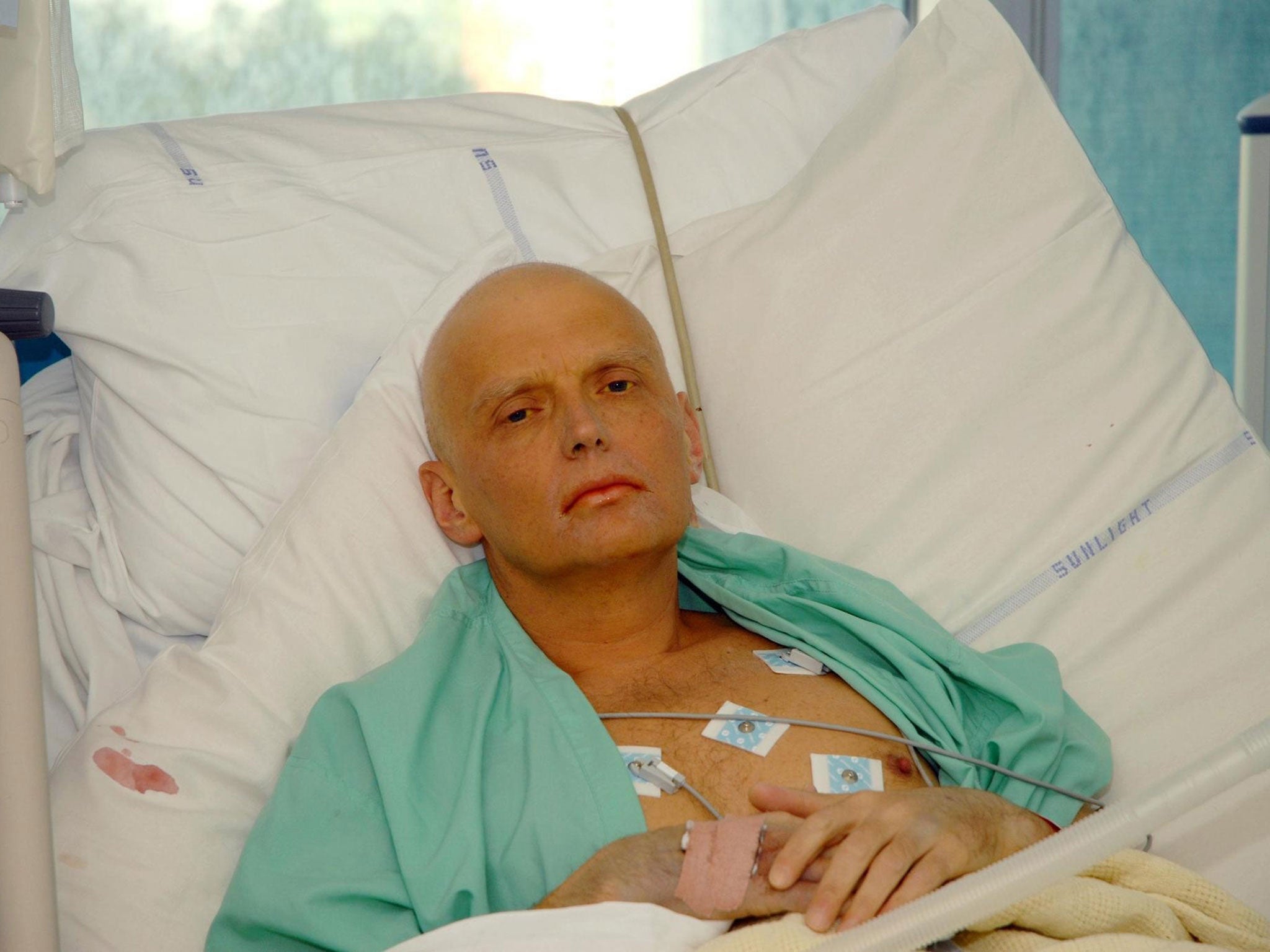Fair inquest for Litvinenko impossible, judge warns
Hearing in danger of collapse after British Government’s accused of evidence cover-up

The judge investigating the killing of the former KGB agent Alexander Litvinenko said that the British Government’s cover-up of vital evidence was making it impossible for him to conduct a fair inquest.
The inquest into the death of the 42-year-old spy, who was poisoned by polonium-210, appeared in danger of collapsing before it had begun last night after Sir Robert Owen suggested that a public inquiry might be a better forum to examine the evidence.
Mr Litvinenko died in November 2006 after meeting two former KGB contacts – Andrei Lugovoy and Dmitry Kovtun – at the Millennium Hotel in Grosvenor Square, London. British prosecutors named Mr Lugovoy as the main suspect in the case but Russia has refused to extradite him to the UK for questioning.
Mr Litvinenko’s widow, Marina, has always maintained that her husband, who fled to the UK in 2000, was working with MI6 and that Mr Lugovoy was acting under instruction from the Kremlin. The long-postponed inquest had been due to start in October.
She denounced the decision as a “political deal” that amounted to an abandonment of the search for truth.
A statement from Mrs Litvinenko’s solicitors said: “This is a very sad day for Mrs Litvinenko, a tragedy for British justice. “The effect of today’s ruling is to protect those responsible for ordering the murder of a British citizen on the streets of London, and to allow the Russian government to shield behind a claim for secrecy made by William Hague with the backing of the Prime Minister David Cameron. A political deal has been done between the two governments to prevent the truth from ever seeing the light of day.”
Lawyers for the Foreign Secretary William Hague had applied for information relating to Russian state involvement, as well as how much British intelligence services could have done to prevent the death, to be excluded from the inquest.
In his ruling, Sir Robert, the assistant deputy coroner in charge of the inquest, upheld the Secretary of State’s claim on the two central issues of Russian involvement and preventability. Pointing out that he had no power to take evidence in secret in an inquest, Sir Robert said this left him with two unsatisfactory options.
If Sir Robert kept the issues within the scope of the inquest relying on the limited open evidence available, he would “fail to discharge my duty to undertake a full, fair and fearless inquiry into the circumstances of Mr Litvinenko’s death”, he said.
But to exclude them all would be “to leave uninvestigated two issues that are of central importance”, adding: “To attempt to address such issues without being able to take such material into account has the inevitable consequence that the inquiry would be incomplete, and a verdict potentially misleading and/or unfair to the interested parties or to others who might be implicated, in particular the Russian state.”
He therefore concluded that a public inquiry, where evidence could be heard in secret, might be the best option, if this was requested by any of the interested parties, which include Mrs Litvinenko, Mr Lugovoy, the Metropolitan Police and the Russian state.
Join our commenting forum
Join thought-provoking conversations, follow other Independent readers and see their replies
Comments